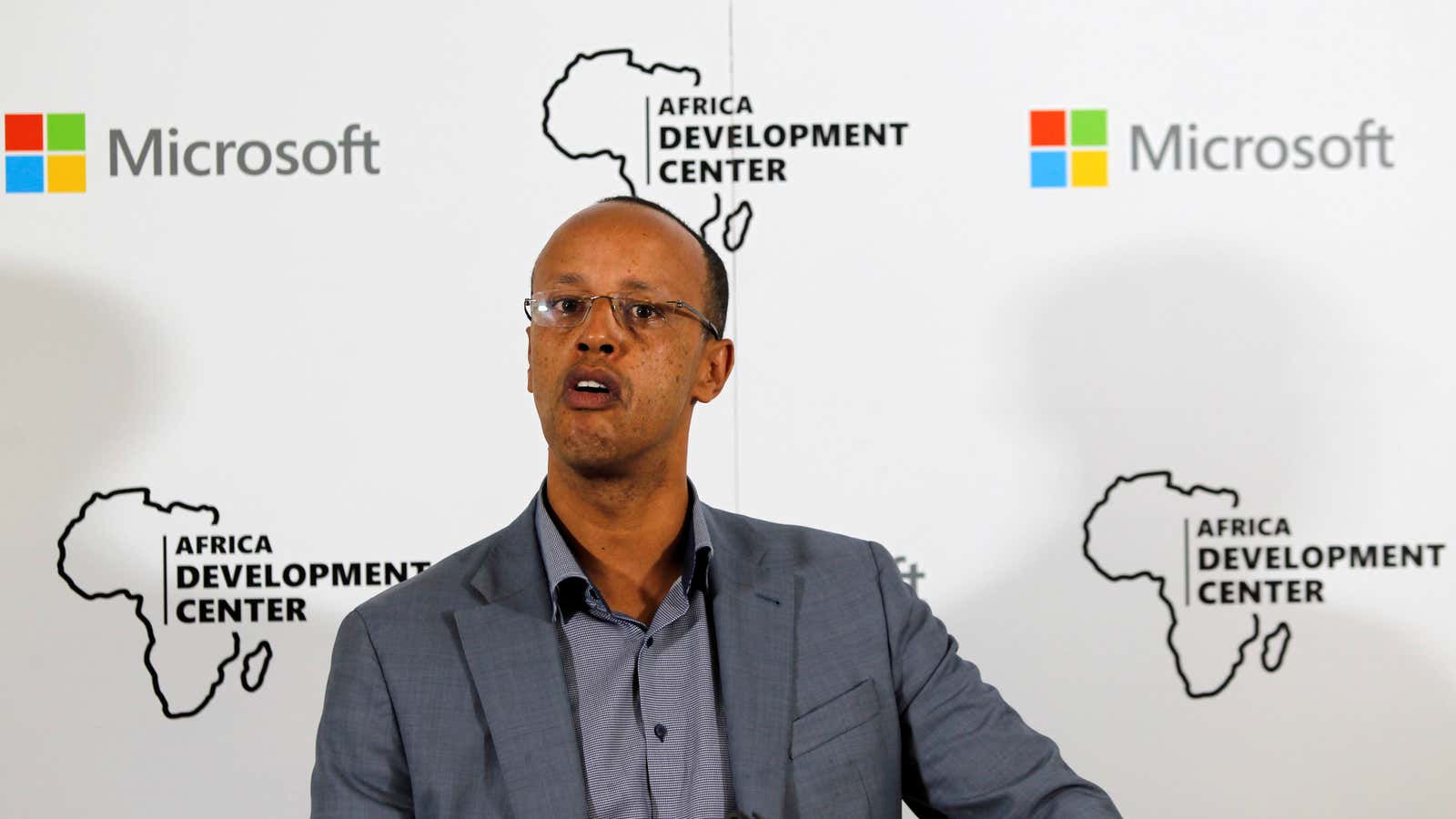‘Brain drain’ in Africa is an antiquated term when it comes to tech. This is according to a few startup founders on the continent.
Increased internet connectivity is allowing Africa’s tech talent to be hired by any company in the world while still living in their home countries and contributing to local tech and economic growth.
“It’s time we stopped using ‘brain drain’ because Africa is benefitting from the experience of its talent hired by Big Tech companies in the US, EU and China. We’re also relying on them for tech mentorship,” Timothy Oriedo, CEO and founder of Nairobi-based data science training startup Predictive Analytics tells Quartz.
Work from home is the new norm
Cloud-based services and supporting work platforms such as Slack, Zoom, Google Meet, and Microsoft Teams mean you no longer need to apply for a visa or work permit to work in Silicon Valley or Shenzhen.
“The covid-19 pandemic came with increased demand for tech talent as most professionals found working from home feasible. The demand for cloud skills rose and the opportunities for remote work soared,” says Oriedo, who has trained over 1,200 data scientists in the past three years.
Big tech is helping Africa to improve talent quality
As more African tech professionals up-skilled to match the rising demand for frontier tech skills, they also became more attractive to multinational tech companies such as Google, IBM, SAP, AWS, Meta, and Oracle, consequently getting poached.
But that should not be seen as a blow to the local industry as they have set up centers in the continent. “Africa needs talent that have worked alongside the best in the world so we can improve our talent quality.” Big Tech also offers free training on modern tech skills and funding for startups.
Oriedo sees talent training as a revolving door, as the vacuum created by departing professionals can be filled by talent from younger ages, and take them up the ladder.
Not all will agree with this sentiment as according to some who manage talent in the space, finding junior talent is not the challenge, but the real struggle comes to more specialized senior tech talent, with local companies struggling to compete with what Big Tech can offer them.
For Andrew Mori, founder and CEO of Cape Town-based cloud training startup Deimos, a Google Cloud partner, working with the Big Tech as a cloud engineer gives you a global perspective of tech, from which you can train fellow Africans.
“It is an opportunity for Africa to ultimately do things by itself. Intellectual capacity in the continent is enormous but only a few companies are tapping into it,” Mori tells Quartz.
Work anywhere, anytime
His dream is to help the continent produce 10 million engineers through a mentorship program that pairs experienced engineers with younger, more aspiring engineers. ‘Brain drain’ to him belongs to previous decades as he has trained and hired cloud engineers in Nigeria, Ghana, Senegal, Kenya, and Tanzania virtually.
“Many companies waste budgets by hiring foreign engineers who don’t understand Africa’s problems. When a two-year project fails, they now start looking for African cloud engineers. That’s why Big Tech’s staff in their African offices must hire African professionals.”
To attract tech talent, Deimos offers paid internships, bootcamps, and mentorship to trainees and as multinationals continue to outsource talent from Africa, the continent will soon “be an intellectual powerhouse.”
Lagos-based ALX and The Room, which train software engineers, virtual assistants, and financial analysts, believe digital transformation is the next industrial revolution and African talents need “skills, experience, and relationships that keep you ahead of the curve.”
Chief executive Fred Swaniker says waiving training fees will help Africa claim a bigger share of the global software engineering market, from its current 2.6%. By 2030, there will be a global human talent shortage of up to 85 million people. In technology alone, Africa will need more than the 716,000 developers it currently has to contribute in bridging the gap.
“We stopped trying to charge our members fees and are instead charging employers to access our unique talent pool. With an abundant source of software engineers, data scientists, cybersecurity engineers, and cloud developers, we will enable businesses around the world to stay ahead of the curve,” he says.
